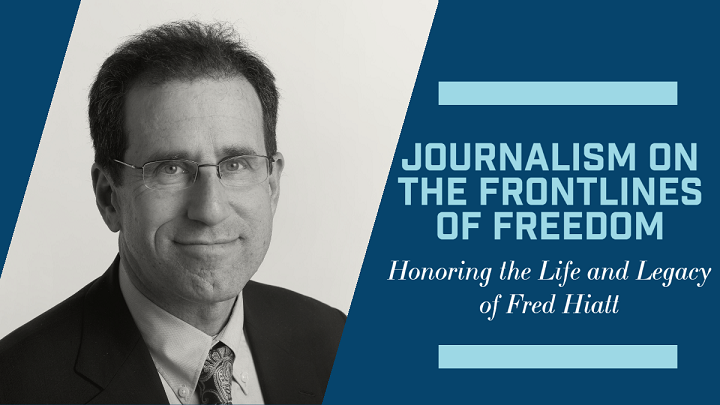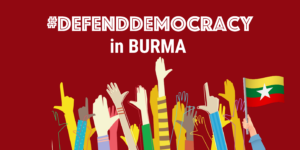 Vladimir Putin’s efforts to curb freedom of expression still face resistance from independent news outlets that have adapted to the new environment by deploying digital tools and using transnational platforms to continue to challenge official narratives about the war and, more broadly, Russia’s break with the West, notes Maria Repnikova, an Associate Professor in Global Communication at Georgia State University.
Vladimir Putin’s efforts to curb freedom of expression still face resistance from independent news outlets that have adapted to the new environment by deploying digital tools and using transnational platforms to continue to challenge official narratives about the war and, more broadly, Russia’s break with the West, notes Maria Repnikova, an Associate Professor in Global Communication at Georgia State University.
Some outlets, such as Meduza, publish extensive analysis and reporting about the war on Telegram—a popular social-media platform that, so far, remains accessible in Russia, she writes for The Atlantic:
According to Alexey Kovalev, an investigative journalist and an editor at Meduza who was forced to

Meduza
flee Russia for Latvia, Telegram has been instrumental in maintaining and even expanding their readership. The number of subscribers to the outlet’s Telegram channel has more than doubled since the start of the war. Meduza and smaller media outlets such as Kholod have also published detailed instructions to help readers keep up with their content, including following the outlets on social media and installing a VPN to avoid government censorship. In contrast to the Soviet era, the expansion of the internet in contemporary Russia makes the complete isolation and expulsion of critical, pro-Western views impossible.
Ironically, then, Putin’s strategy to turn Russia away from the West has forced his critics into greater integration with the West, partly as a survival mechanism, says Repnikova, the author of Media Politics in China: Improvising Power Under Authoritarianism and Chinese Soft Power. Putin’s regime has discarded the notion of showcasing “credentials” for the West by tolerating critical voices, but its effort to vanquish Russian journalists’ motivation to hold Putin and his system accountable has failed. If anything, it has likely made their motivation stronger. RTWT
 On another front, in Burma, where courageous, underground, independent media worked for decades to defeat a dictatorship and usher in democracy, journalists find themselves in danger and working from exile once again after last year’s military coup, the National Endowment for Democracy (NED) adds.
On another front, in Burma, where courageous, underground, independent media worked for decades to defeat a dictatorship and usher in democracy, journalists find themselves in danger and working from exile once again after last year’s military coup, the National Endowment for Democracy (NED) adds.
For much of the past 30 years, as countless NED partners from some of the most difficult environments would pass through Washington, they were often welcomed by one of America’s most influential journalists, Fred Hiatt (above). The longtime editor of The Washington Post editorial page, Fred took a special and personal interest in the stories and struggles of aspiring democrats from every corner of the world and wrote often about their courageous work. Washington Post editorials forcefully condemned leaders who abused their power and highlighted the cases of those most at risk, appealing to our government and the international community to protect them.

Institute for Strategy and Policy Myanmar
To honor the legacy of Fred’s life and work, NED will make a posthumous presentation of the Democracy Service Medal at an event focused on the important work of journalists from frontline countries and the dangers and challenges they face. Fred’s longtime Washington Post colleague and friend Jackson Diehl will moderate a conversation with key journalists and thought leaders from Ukraine, Burma, and Russia. Following their discussion, longtime friends and colleagues will pay tribute to Fred as the Medal is presented to the Hiatt family.
Thu, April 28, 2022. 4:00 PM – 6:00 PM EDT. RSVP
Welcome: Damon Wilson. Opening Remarks: Nicholas Benequista, Director, Center for International Media Assistance. Conversation with Frontline journalists and thought leaders: Jackson Diehl, Washington Post; Roman Badanin, Editor-in-Chief, Proekt; Myroslava Gongadze, Eastern Europe Chief, Voice of America; Min Zin, Executive Director, Institute for Strategy and Policy Myanmar. Tributes to Fred Hiatt from Damon Wilson, Michael Abramowitz, Masha Lipman, Robert Kagan, Carl Gershman, Anne Applebaum, Donald Graham.

The International Fact-Checking Network (IFCN) hosts its premier global fact-checking summit this summer, the Poynter Institute’s Sara Bealor writes. Five leading voices from journalism, academia and politics will headline GlobalFact 9 June 22-25, 2022, at the Oslo Metropolitan University’s City Center Campus in Oslo, Norway, to discuss the state and future of fact-checking with creators, consumers and champions of fact-based reporting:
Anne Applebaum, Pulitzer Prize-winning historian, journalist and commentator on geopolitics, will address the challenges and opportunities of global political and economic change through the lenses of world history and the contemporary political landscape. Dr. Joan Donovan, research director of the Harvard Kennedy School’s Shorenstein Center on Media, Politics and Public Policy. Jane Lytvynenko, freelance reporter and senior research fellow of the Technology and Social Change Project at the Harvard Kennedy School’s Shorenstein Center on Media, Politics and Public Policy. Peter McIndoe will discuss what happens when millions of people rally around absurdity as the founder and creator of Birds Aren’t Real. Craig Silverman, award-winning journalist at ProPublica and author and editor of the Verification Handbook, will cite illuminating examples from more than a decade’s worth of his own investigative reporting.
Register to attend GlobalFact 9 in person or virtually here.
Award-winning journalists, researchers and Birds Aren’t Real founder to headline the world’s largest fact-checking summit, supported by @NEDemocracy https://t.co/xMJqAc0Ysp
— Democracy Digest (@demdigest) April 20, 2022







